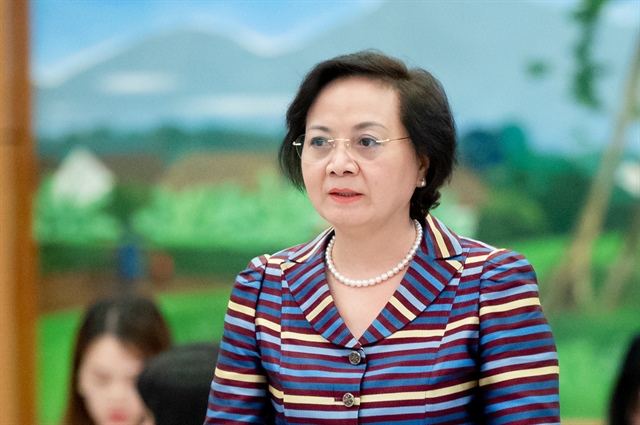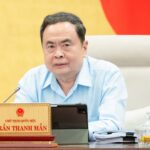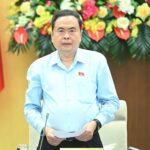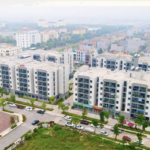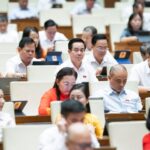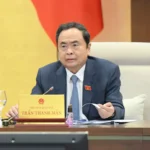The Standing Committee of the National Assembly gave opinions on the absorption, explanation, and editing of the draft Law on Organization of Local Government (amended) at its 46th meeting this afternoon.
Enhancing the power of the Chairman of the People’s Committee at the provincial and communal levels
Minister of Home Affairs Pham Thi Thanh Tra, authorized by the Prime Minister, presented a report on the absorption, editing, and completion of the draft Law on Organization of Local Government (amended).
Based on the opinions of the National Assembly delegates, the Government has edited and completed the regulations to ensure the establishment of a clear two-tier model of local government (provincial and communal levels).
At the same time, the Government has also added some criteria to further clarify the regulations on special administrative-economic units to distinguish them from special zones.
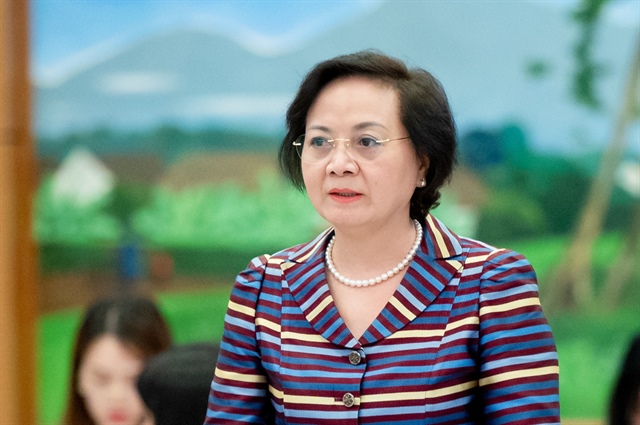 Minister of Home Affairs Pham Thi Thanh Tra. Photo: National Assembly |
Specifically, the Government decided to empower local governments to resolve issues related to two or more administrative units, reducing the pushback of responsibilities to higher levels and improving the effectiveness of communal-level governance.
To strengthen the role and responsibility of the head as suggested by the delegates, the draft law has improved the content of distinguishing between the tasks and powers of the People’s Committee and the tasks and powers of the Chairman of the People’s Committee, increasing the authority of the Chairman of the People’s Committee at the provincial and communal levels.
According to the draft law, the People’s Committee at the provincial level has 12 tasks and powers; the Chairman of the People’s Committee at the provincial level has 23 tasks and powers; the People’s Committee at the communal level has 10 tasks and powers; and the Chairman of the People’s Committee at the communal level has 17 tasks and powers.
The draft law also supplements the regulation that the Chairman of the People’s Committee is authorized to make decisions on behalf of the People’s Committee on matters within its competence and report to the People’s Committee at its nearest session, except for matters that the law stipulates must be discussed and decided by the People’s Committee as a collective.
Regarding some opinions suggesting a detailed list of “necessary cases” in which the People’s Committee and the Chairman of the People’s Committee at the provincial level directly direct and manage the resolution of matters falling within the tasks and powers of the departments or the Chairman of the People’s Committee at the communal level, Minister of Home Affairs Tra stated that a detailed list of cases in the draft law would not be comprehensive and might limit the scope of the regulation or omit cases that arise in practice.
“The application to specific cases will be decided by the People’s Committee and the Chairman of the People’s Committee at the provincial level, ensuring flexibility in directing and managing the deployment of work in the locality, effectiveness, and efficiency, without affecting the provision of public services to the people and businesses in the communal area, especially during the transition period,” emphasized Ms. Tra.
More than 1,000 tasks are decentralized and delegated to local authorities
The amended draft law also supplements the regulation on the subject of the Provincial People’s Council being decentralized to the People’s Committee at the same level and the People’s Council at the communal level, ensuring conformity with the current laws and the reality of the localities.
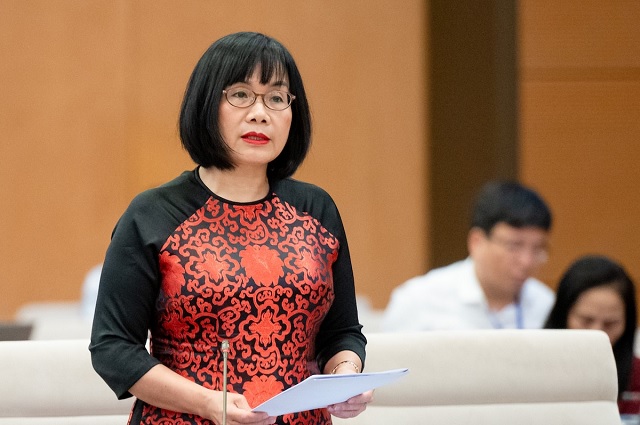
Deputy Minister of Justice Dang Hoang Oanh. Photo: National Assembly
|
According to Minister Tra, a preliminary review identified more than 1,000 tasks that are decentralized and delegated to local authorities, with 40% being tasks of the People’s Council and the remaining 60% being decentralized to the Chairman and the People’s Committee.
“With such a large volume of work, the People’s Council will be overloaded. At the same time, the Provincial People’s Council also faces the demand for great innovation,” said Ms. Tra.
The Minister of Home Affairs also stated that this reflects a reformist mindset regarding power organization, in line with current international trends when decentralizing to local governments the decision-making power over matters of national strategy and people’s livelihood, ensuring timely, flexible, dynamic, creative, and optimal service to the people.
The Chairman of the Committee for Legal and Judicial Affairs, Mr. Hoang Thanh Tung, suggested that consideration be given to allowing the Provincial People’s Council to decentralize to the People’s Committee at the same level or the People’s Council at the communal level.
According to the Chairman of the Committee for Legal and Judicial Affairs, if the Government and local authorities believe that there are matters that the People’s Committee or the People’s Council at the communal level can perform better, they should propose that the competent authority adjust the power distribution of the People’s Council in the law, National Assembly resolution, or corresponding Government decree.
On this issue, Deputy Minister of Justice Dang Hoang Oanh added that expanding decentralization as proposed in the draft law would enable the People’s Council to be more flexible and proactive, closely linking policy formulation with implementation, enhancing the autonomy and accountability of local governments, and allowing the People’s Council to maintain its effective supervisory role.
The Vinh
– 18:14 03/06/2025
Can Surplus Office Spaces Post-Merger be Transformed into Social Housing?
Amid challenges in developing social housing across the country, the Land Management Authority has proposed an innovative solution. They suggest repurposing surplus government offices, resulting from mergers, into social housing. This proposal offers a potential win-win situation by addressing the need for social housing while making efficient use of existing resources.
“Scrapping the Proposal for Civil Servants to Live 30km Away from Work to Be Eligible for Public Housing”
The government proposes that instead of mandating a 30km distance criterion for civil servants to be eligible for social housing, the decision should be left to the provincial People’s Committees. This proposal takes into account the varying local conditions and empowers local authorities to make detailed regulations.
No Refund Policy for Landowners in Social Housing Projects
The proposed resolution does not outline a policy for the state to reimburse investors for their land use rights or agree to transfer these rights. Nor does it outline any advance compensation for resettlement and support. Instead, investors are permitted to include these costs as part of their project investment expenses.

